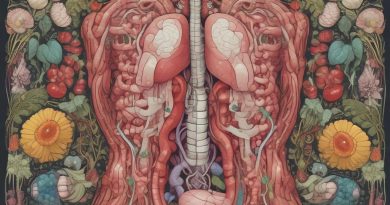The Benefits of Regular Exercise: Why Staying Active is Key to a Healthy Life

Exercise isn’t just about building muscles or losing weight—it’s a crucial part of maintaining overall health. From improving mental clarity to reducing the risk of chronic diseases, regular physical activity can have a profound impact on both your body and mind. In this post, we’ll explore the many benefits of exercise and why it should be a priority in your daily routine.
Why Regular Exercise is Important
Exercise plays a critical role in maintaining both physical and mental health. Here are some of the key reasons why staying active is essential:
1. Boosts Heart Health
Regular physical activity strengthens the heart and improves circulation, which helps lower your risk of heart disease and high blood pressure. Exercise also helps improve cholesterol levels by raising good HDL cholesterol and lowering bad LDL cholesterol, reducing your overall cardiovascular risk.
2. Improves Mental Health
Exercise is well-known for its ability to improve mood and reduce symptoms of anxiety and depression. Physical activity increases the production of endorphins, the body’s natural feel-good hormones. Regular exercise also reduces stress and helps clear the mind, making it an excellent tool for managing mental health.
Mental Health Benefits of Exercise:
- Reduces symptoms of anxiety and depression.
- Improves cognitive function and reduces the risk of cognitive decline.
- Boosts self-esteem and confidence.
- Helps manage stress and promotes relaxation.
3. Aids Weight Management
Exercise plays a crucial role in weight management by increasing the number of calories your body burns. Whether you’re looking to lose weight, maintain a healthy weight, or simply stay in shape, regular exercise helps regulate your metabolism, burn fat, and build lean muscle.
Exercise for Weight Loss and Maintenance:
- Increases calorie burn and supports a calorie deficit.
- Helps maintain muscle mass, even when losing weight.
- Supports metabolism and helps regulate blood sugar levels.
4. Enhances Strength and Flexibility
Strength training and flexibility exercises, such as yoga or Pilates, help build muscle, improve posture, and prevent injury. Strong muscles and flexible joints improve mobility, making daily activities easier to perform. Additionally, building strength can boost your metabolism and contribute to long-term weight management.
Strength and Flexibility Benefits:
- Improves balance and coordination.
- Reduces the risk of falls and injuries.
- Increases joint mobility and flexibility.
- Enhances muscle tone and strength.
5. Boosts Immune System Function
Regular exercise supports the immune system by promoting healthy circulation and the flow of immune cells throughout the body. It has been shown that people who engage in regular physical activity tend to experience fewer illnesses and recover more quickly when they do get sick.
Immune System Benefits of Exercise:
- Boosts circulation, helping immune cells reach tissues more effectively.
- Reduces inflammation in the body.
- Improves respiratory function and lung capacity.
6. Improves Sleep Quality
Physical activity can improve the quality and duration of your sleep. Regular exercise helps reduce stress and anxiety, which are common contributors to insomnia. It also helps regulate the sleep-wake cycle, ensuring you get restful and restorative sleep.
How Exercise Improves Sleep:
- Promotes deep sleep and helps you feel more rested.
- Helps reduce insomnia and difficulty falling asleep.
- Regulates circadian rhythms, making it easier to wake up and fall asleep at the same time every day.
7. Increases Energy Levels
It may seem counterintuitive, but regular exercise can actually increase your energy levels. Exercise improves circulation and helps oxygen and nutrients reach your muscles more efficiently, making you feel more energetic throughout the day. Over time, regular physical activity boosts stamina and overall endurance, allowing you to feel less fatigued.
Energy Boosting Benefits of Exercise:
- Improves circulation and increases oxygen supply to tissues.
- Increases stamina and endurance over time.
- Reduces feelings of fatigue and increases overall energy.
Types of Exercise to Consider
To reap the full benefits of exercise, it’s important to include a variety of activities that engage different muscle groups and contribute to overall health. Here are some types of exercise to consider:
1. Aerobic Exercise
Aerobic exercises, such as walking, running, cycling, and swimming, are excellent for improving cardiovascular health, boosting endurance, and burning calories. Aim for at least 150 minutes of moderate-intensity aerobic activity per week.
2. Strength Training
Strength training exercises, such as weightlifting, resistance bands, or bodyweight exercises, help build muscle, improve strength, and boost metabolism. Try to incorporate strength training exercises at least two to three times per week.
3. Flexibility and Balance Exercises
Flexibility exercises, such as yoga or Pilates, improve muscle flexibility, joint mobility, and posture. These activities also enhance balance and reduce the risk of falls, especially as you age.
4. High-Intensity Interval Training (HIIT)
HIIT involves short bursts of intense activity followed by brief periods of rest. It’s an efficient way to improve cardiovascular fitness, burn fat, and build strength in a short amount of time.
How to Make Exercise a Habit
While the benefits of exercise are clear, it can be challenging to stay consistent. Here are some tips for making exercise a regular part of your routine:
1. Start Small
If you’re new to exercise, start with shorter sessions or lighter activities and gradually increase the duration and intensity over time. It’s important to find a pace that works for you.
2. Set Realistic Goals
Set clear, achievable fitness goals to stay motivated. Whether it’s walking 10,000 steps a day or doing 20 minutes of strength training, setting small goals can help you stay on track.
3. Find an Activity You Enjoy
Choose activities that you enjoy to make exercise feel less like a chore. Whether it’s dancing, cycling, or hiking, finding something fun will make it easier to stick with it.
4. Make It a Routine
Schedule your workouts at the same time every day to build consistency. Treat it like any other important appointment in your day.
5. Get a Workout Buddy
Exercise is often more fun when you have a partner to join you. Find a friend or family member to work out with, or join a class to stay motivated.
Final Thoughts: Make Exercise a Priority for Better Health
Exercise is one of the most effective ways to improve your overall health, from boosting your energy levels to improving your mental well-being. Whether you’re looking to manage your weight, increase your strength, or improve your cardiovascular health, regular physical activity is the key to a long, healthy life.
Start small, stay consistent, and choose activities that you enjoy to reap the benefits of exercise. Remember, the more you make exercise a part of your routine, the more you’ll feel the positive changes in your body and mind.



